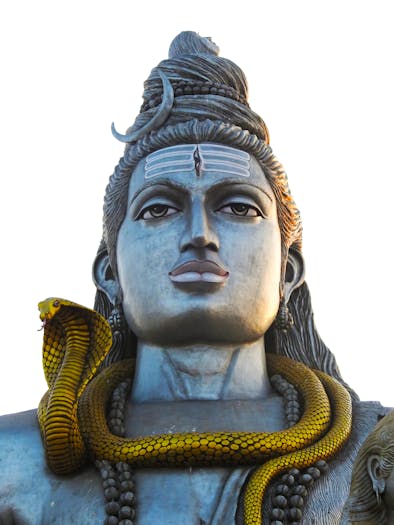Which Religion Has the Most Gods?

Which Religion Has the Most Gods? Debunking the Myth
You’ve probably heard the claim: Hinduism has 33 million gods and goddesses, making it the religion with the most gods. It’s a jaw-dropping number, tossed around in trivia games and social media posts. But is it true, or are we caught in a web of religion with the most gods myths? In this post, we’ll unravel the origins of this misconception, dig into the realities of polytheistic faiths like Hinduism and Greek mythology, and clarify what “many gods” really means. Let’s explore which religion has more than one god and why the numbers don’t tell the whole story.
The Origins of the “Most Gods” Myth
Where Did the 33 Million Gods Idea Come From?
The notion that Hinduism has 33 million gods and goddesses stems from ancient Vedic texts like the Rigveda (circa 1500 BCE), which mention “33 crore gods.” In Sanskrit, “crore” equals 10 million, but scholars like those at Harvard Divinity School argue it’s a symbolic figure, not literal. The number likely refers to diverse manifestations of divine energy, not distinct deities. By the 19th century, Western scholars exaggerated this to paint Hinduism as “exotic,” cementing the myth.
Why It Persists
The idea sticks because big numbers grab attention. In 2025, X posts amplify claims like “which religion has 33 million gods and goddesses?” for viral effect. Globally, cultures with polytheistic traditions—like Shinto in Japan or Yoruba in Nigeria—face similar exaggerations, feeding curiosity about which culture has the most gods.
Myth 1: Hinduism Has 33 Million Unique Gods

The Truth About “33 Crore Gods”
Who are the 33 crore gods? The Vedas actually describe 33 key deities (e.g., Indra, Agni), not millions. These represent natural forces, not individual gods with unique roles, per a 2023 study from the University of Chicago. Hinduism’s pantheon centers on major figures like Vishnu, Shiva, and Devi, with countless avatars (forms) reflecting divine aspects. The “33 million” is a poetic way to express infinite divine expressions, not a headcount.
Comparing Polytheistic Faiths
Which religion has more than one god? Many do, but none match Hinduism’s symbolic scale. Greek mythology, older than some claim (which is older, Greek or Hindu? Hindu predates Greek by ~500 years), features 12 Olympian gods plus minor deities, totaling ~50, per Oxford Classical Studies. Shinto has thousands of kami (spirits), but they’re not “gods” in the Western sense.
Myth 2: More Gods Equals More Power
Is There a “Most Powerful God”?
The question “which religion has the most powerful god?” assumes a hierarchy across faiths, but it’s a myth rooted in misunderstanding. In polytheism, gods have specific domains (e.g., Zeus for sky, Saraswati for wisdom). A 2021 Journal of Religion study notes that power in Hinduism or Greek traditions isn’t about quantity but context—Shiva’s cosmic dance isn’t “stronger” than Athena’s wisdom. Monotheistic faiths like Christianity (names of god in the bible) emphasize one omnipotent deity, sidestepping the comparison.
Female Gods in the Spotlight
Which religion has the most female gods? Hinduism again stands out, with goddesses like Lakshmi and Durga central to worship. Yoruba traditions also elevate female deities like Oshun, but numbers don’t equate to influence—quality of reverence matters more.
Myth 3: Polytheism Means “Believing in All Gods”
Do Some Religions Accept All Gods?
Which religion believes in all gods? None fully do, but Hinduism’s inclusive philosophy comes close, viewing other faiths’ deities as manifestations of the same divine, per UCLA’s South Asian Studies. This contrasts with monotheistic religions (do Buddhists believe in god? Not typically—Buddhism focuses on enlightenment, not deities). The myth of “all gods” acceptance oversimplifies complex theological boundaries.
Cultural Variations
Which country has the most gods? India, tied to Hinduism, gets the nod due to its vast pantheon, but Japan’s Shinto kami culture is a close contender. The myth arises from conflating cultural diversity with deity counts, ignoring symbolic roles.
Practical Insights for Understanding Polytheism
- Learn key deities: Start with Hinduism’s trinity (Brahma, Vishnu, Shiva) or Greek’s Olympians to grasp polytheism’s structure.
- Respect context: Avoid comparing “power” across faiths—focus on cultural significance, per UNESCO’s interfaith guidelines.
- Explore globally: Study Yoruba, Shinto, or Norse traditions to see how which culture has the most gods varies by lens.
Avoiding Missteps
Don’t assume more gods means “better” or “chaotic.” For example, which religion has 12 gods? Greek mythology’s Olympians are iconic, but their limited number doesn’t diminish their impact. Sensitivity matters when discussing religion with the most gods, especially in diverse U.S. communities.
Conclusion
The religion with the most gods myth, centered on Hinduism’s “33 million gods,” is a fascinating blend of exaggeration and cultural misunderstanding. From Vedic poetry to modern social media, we’ve seen how numbers get inflated and why how many gods in Hinduism isn’t a simple count. Polytheistic faiths like Hinduism, Greek mythology, and Shinto offer rich, symbolic pantheons, not competitions for “most.” Curious about other religious myths? Join OmniMyths’ community—share your thoughts below and subscribe for more truth-unraveling content!
Frequently Asked Questions
Q: Which religion has 33 million gods and goddesses?
A: Hinduism is often cited, but the “33 million” is a myth. Vedic texts mention 33 key deities, with “crore” symbolizing infinite divine forms, per University of Chicago research.
Q: How many gods in Hinduism?
A: Hinduism has no fixed number—33 major deities are named in the Vedas, but avatars and local gods create a vast, symbolic pantheon, not a literal 33 million.
Q: Which religion has more than one god?
A: Polytheistic faiths like Hinduism, Greek mythology, Shinto, and Yoruba worship multiple deities. Each has unique structures, with Hinduism’s pantheon being the most expansive, per Oxford studies.
Q: Which religion has the most female gods?
A: Hinduism features prominent goddesses like Devi and Saraswati, with Yoruba traditions also emphasizing female deities. Exact counts vary, but influence outweighs numbers, per Journal of Religion.
Q: Which religion believes in all gods?
A: No religion fully accepts all gods, but Hinduism’s inclusive philosophy views other deities as divine manifestations. This differs from monotheistic or non-theistic faiths like Buddhism, per UCLA.
Q: Which culture has the most gods?
A: India’s Hindu culture is often cited due to its vast pantheon, but Japan’s Shinto kami and African Yoruba traditions also feature numerous deities, per UNESCO cultural studies.
